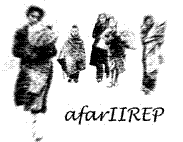
españolCommuniqué on the parliamentary debate of 1st June 2004 on the question of historical memory in Spain.Once again, the inconsistency in some of our parliamentarians' positions leads us to express our categorical rejection of these.
In the debate in the Congress of Deputies on 10th September 2003, PSOE (Socialist Party) parliamentarian Mrs. Amparo Valcarce presented a draft resolution [ "proposición no de ley" : parliamentary statement in which Congress expresses its position on a concrete matter] for the annulment of summary trials that took place during the Franco dictatorship.
The interventions of all the representatives of opposition parties supporting the initiative were exemplary, sensitive, supportive and humane, including those of the PSOE deputy.
That was not so in the case of the intervention by the representative of the party then in government (Popular Party "PP"), Mr. Atencia, which caused those relatives present at the debate both pain and amazement. The vote was lost because of the PP majority.
If Congress had been otherwise constituted, the resolution would have been passed.
Now we find that a Socialist MP, Mr. Jauregui, rules out the possibility of annulling the summary trials, referring to legal justifications, which neither have any value nor correspond with the arguments put forward by his party colleague only eight months ago. With his words in the Congress of Deputies, Mr. Ramon Jauregui legitimises the acts of the Franco regime.
Without going in depth into the judgments of the Constitutional Court, there is no legal or political reason preventing the Spanish Parliament, as the sole representative of the people's will, from establishing by law the illegality of something so obvious as the legal proceedings of a system of government both condemned and expressly banned by the United Nations, and even more so when we are talking about the actual consequences of trials that are completely null and void.
Or does the party for whom Mr. Jauregui spoke now recognise the legality of the regime that emerged from the military uprising of 1936 and the legal proceedings that violated the most fundamental civil and human rights of millions of Spaniards?
It is a bad way to commemorate 125 years of the PSOE and the memory of its activists whose execution sentences were pronounced by trials having no legality or legitimacy and which the people always considered a farce.
With performances of this type, we question the sincerity of the intention to recover the memory of the Repression and the illegitimacy of the dictatorship whose barbaric acts, caused the breakdown of peaceful coexistence in our nation. Arguments that are rebuttable and that do not favour the cohesion of Spain should not be utilised as long as those facts are not known to all, and its illegitimacy is proven. We declare our satisfaction at the initiation of the debate on the truth of our history, with the hope of attaining unity of the criteria amongst the parliamentary groups, bearing in mind both the propositions of the associations that represent those who suffered reprisals at the hands of the dictatorship and human rights.
Madrid, 2nd June 2004
|